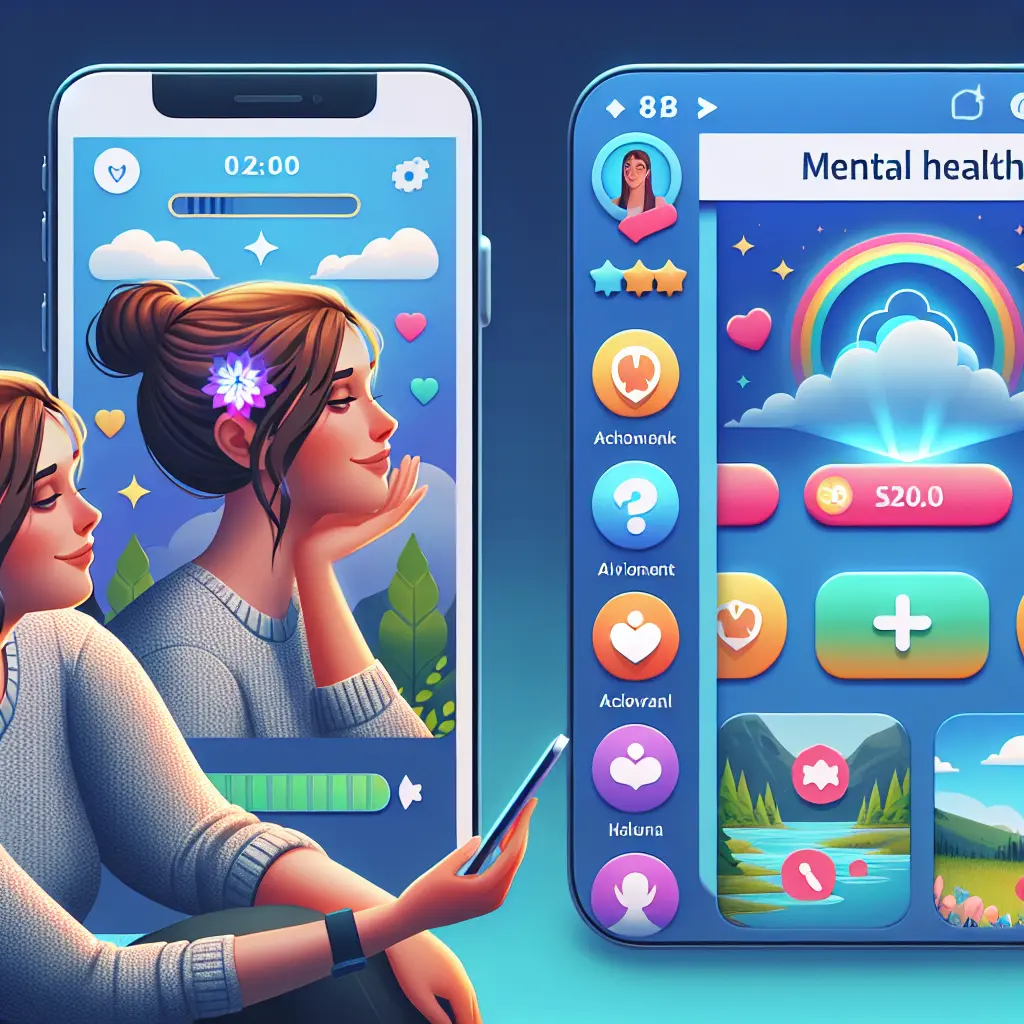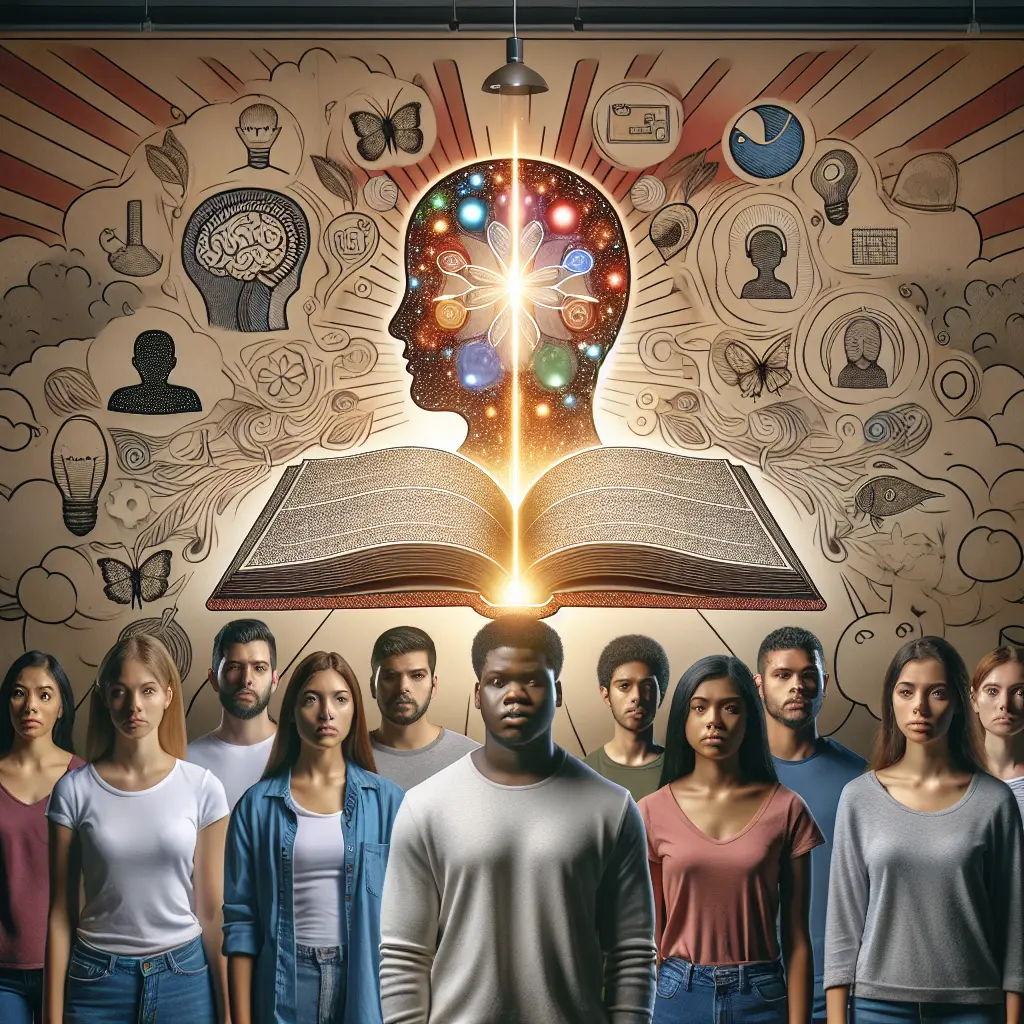In today's rapidly evolving digital landscape, mental health apps are increasingly adopting innovative strategies to captivate users and promote sustained engagement. A standout approach gaining momentum is the use of gamification in mental health apps, which cleverly combines the elements of gaming with therapeutic practices. This integration not only enhances mental health app user engagement but also amplifies the economic impact of mental health apps in the tech industry.
By introducing gamification strategies for mental health, developers are creating interactive experiences that resonate with users, offering both therapeutic value and enjoyment. These gamification techniques for mental health apps, such as rewarding progress and setting achievable goals, have proven to be effective in boosting mental health app usage and improving mental health app user retention.
The economic growth of mental health tech is closely linked to these innovations, with gamified mental health solutions leading the charge. As the mental health app market trends toward more engaging and personalized solutions, the benefits of gamification in mental health become increasingly evident—not only in enhancing mental health app engagement but also in delivering better mental health outcomes.
The role of gamification in digital therapy extends beyond mere entertainment; it fosters a more profound user commitment, ensuring that users remain actively involved in their therapeutic journeys.
As we explore the future of gamification in mental health, it's crucial to understand how these advancements can lead to the economic benefits of gamified mental health apps and their potential for fostering economic growth within the mental health tech sector. Delving deeper into this transformative intersection, we uncover the promising opportunities and challenges that lie ahead for app developers and users alike.
Gamification in Mental Health Apps for Enhanced User Engagement
In today's digital age, where technology continues to permeate every aspect of our lives, mental health apps have emerged as crucial tools in promoting mental well-being. However, a significant challenge these apps face is maintaining user engagement over time. A novel solution to this challenge is the integration of gamification strategies within mental health apps. This approach not only enhances mental health app user engagement but also contributes significantly to the economy of mental health apps by attracting a broader user base and improving user retention.
Gamification refers to the application of game-design elements in non-game contexts. In the realm of mental health apps, this involves incorporating features such as rewards, challenges, and progress tracking to encourage users to engage with therapeutic content more consistently. By transforming mundane activities into engaging experiences, gamification helps maintain user interest and fosters long-term engagement.
Recent research highlights the potential of gamified solutions in enhancing user engagement. According to a study by Bradley Barbour and colleagues published on Plos.org, integrating virtual reality with exercise demonstrates how immersive platforms can gamify activities to provide both physiological and psychological benefits. This insight can be extrapolated to mental health apps, suggesting that similar techniques could amplify engagement and therapeutic outcomes.
1. Increased User Retention: One of the primary benefits of gamification in mental health apps is its ability to improve user retention. By offering rewards for completing tasks or achieving milestones, users are motivated to return to the app regularly.
Benefits of Gamification in Mental Health
Enhanced Engagement: Gamification techniques such as leaderboards, badges, and progress bars can make the process of mental health management more engaging. This is particularly beneficial in maintaining interest among younger users who are accustomed to interactive and visually stimulating digital experiences.
Improved Mental Health Outcomes: By making therapeutic activities more enjoyable, users are more likely to adhere to their mental health programs, leading to better outcomes. The continuous feedback and sense of achievement provided by gamified elements can enhance motivation and commitment to therapy.
Economic Impact: The economy of mental health apps is positively impacted by gamification through increased downloads and subscriptions. As more users engage with these apps, developers can leverage this popularity for monetization opportunities, thereby fostering economic growth within the mental health tech sector.
Gamification Strategies for Mental Health
To effectively implement gamification in mental health apps, developers must carefully design strategies that align with therapeutic goals while ensuring an engaging user experience:
Personalized Challenges: Customizable challenges based on individual user preferences and progress can make therapeutic activities more relevant and motivating.
Social Interaction: Features that allow users to share achievements or participate in group challenges can foster a sense of community and support, which is crucial for mental health improvement.
Real-time Feedback: Providing immediate feedback through visual cues or notifications can enhance user satisfaction and encourage continued app use.
Current Trends and Innovations
The mental health app market is witnessing a surge in gamified solutions as developers recognize the potential benefits of this approach. Current trends indicate a shift towards more personalized and interactive solutions that cater to diverse user needs. With advancements in technology such as artificial intelligence and virtual reality, the future of gamification in mental health looks promising.
For instance, virtual reality offers an immersive platform for gamifying therapy sessions, making them more engaging and effective. As demonstrated in the VR exercise study, immersive experiences can significantly enhance both psychological and physiological benefits, offering new avenues for app developers to explore.
Economic Growth through Gamification
Future Prospects
The economic benefits of gamified mental health apps extend beyond increased user engagement. By attracting a wider audience, these apps contribute to the economic growth of the mental health tech industry. As more users adopt these innovative solutions, opportunities for partnerships, investments, and revenue generation multiply.
Moreover, as digital therapy becomes more mainstream, insurance companies and healthcare providers may begin to recognize gamified mental health apps as legitimate therapeutic tools, further driving their economic impact.
Looking ahead, the role of gamification in digital therapy will likely expand as technology continues to evolve. The integration of AI-driven insights could offer even more personalized experiences, while advancements in wearable technology might enable real-time monitoring and feedback.
In conclusion, the future of gamification in mental health holds immense potential for enhancing user engagement and improving therapeutic outcomes. By leveraging innovative strategies and staying attuned to market trends, developers can create compelling mental health solutions that resonate with users and contribute to the economic vitality of the mental health tech sector.
In summary, gamification stands as a transformative strategy in the realm of mental health apps, promising enhanced user engagement and significant economic benefits. Here's a recap of the key points:






Leave a Comment